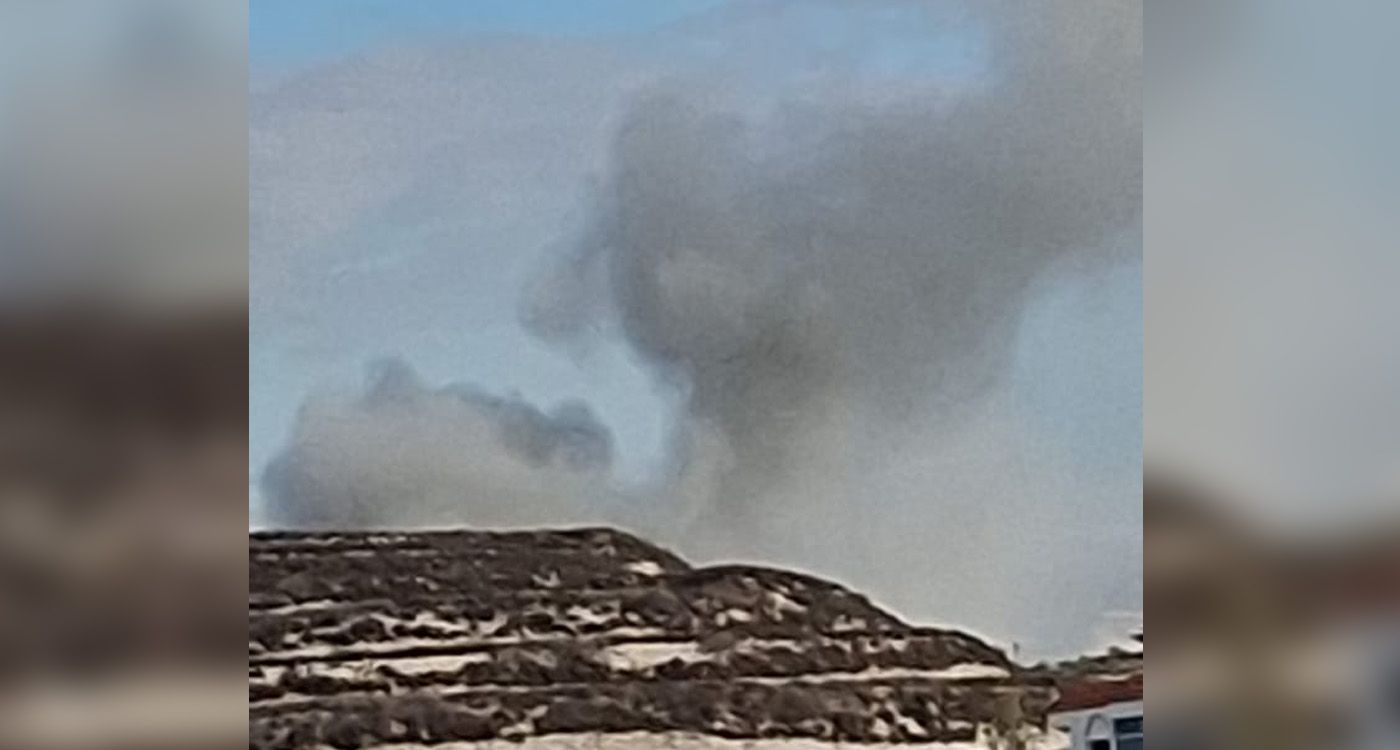
On Thursday, the second day of the ceasefire agreement, the Lebanese Army issued a statement confirming that the Israeli military had committed several violations. These included breaches of Lebanese airspace and attacks on Lebanese territory using various weapons. The Lebanese Army Command stated that it is addressing these violations in coordination with relevant authorities.
Earlier in the day, the Israeli Army attacked villages in the South, and the Israeli Army spokesperson Avichae Adraee renewed his warnings to residents of several areas in southern Lebanon.
The Israeli Army attacked Baysariya in the district of Saida al Zahrani.
There were two Israeli airstrikes by warplanes on the area of Qaaqiyet al-Snoubar in Saida. Israel's Channel 14 reported that the Israeli Army attacked Saida with a fighter jet after spotting a threat.
Avichay Adraae posted on his X account: "Earlier today, terrorist activity was detected inside a Hezbollah site containing medium-range rocket-propelled grenades in southern Lebanon. The threat was thwarted by a strike by warplanes."
#عاجل قبل قليل تم رصد نشاط إرهابي داخل موقع لحزب الله الارهابي كان يحتوي على قذائف صاروخية متوسطة المدى في جنوب لبنان. تم احباط التهديد من خلال غارة لطائرات حربية.
— افيخاي ادرعي (@AvichayAdraee) November 28, 2024
جيش الدفاع منتشر في منطقة جنوب لبنان ويعمل ويحبط كل خرق لاتفاق وقف اطلاق النار. pic.twitter.com/MuOEbXrmsu
Avichay also issued another warning from the Israeli Army to the residents of the South, stating that movement south of the Litani River is strictly prohibited from 5:00 PM to 7:00 AM on Friday.
#عاجل بيان عاجل إلى سكان جنوب لبنان،
— افيخاي ادرعي (@AvichayAdraee) November 28, 2024
⭕️يمنع بتاتًا التنقل أو الانتقال جنوب نهر الليطاني ابتداء من الساعة الخامسة مساء (17:00) وحتى الساعة السابعة صباحًا (07:00) يوم غد.
⭕️يجب على المتواجدين جنوب نهر الليطاني البقاء في مكانهم.
⭕️من أجل سلامتكم يجب عليكم الالتزام بهذه التعليمات pic.twitter.com/HnCWdbaJKv
Shortly afterwards, Israeli artillery targeted the outskirts of Aita al-Shaab while fire bursts were heard in Maroun al-Ras and Aitaroun. According to preliminary information, Israeli troops stationed in Maroun al-Ras fired shots at residents trying to reach their homes in the outskirts of the caza of Bint Jbeil.
In a statement on his X account, Adraee had prohibited residents of Shebaa, Habariyeh, Marjayoun, Arnoun, Yohmor, Kantara, Shaqra, Baraashit, Yater and Mansouri to return to their villages, warning that “the Army does not intend to target you, and therefore you are prohibited at this stage from returning to your homes from this line south until further notice,” adding that whoever moves south of the above-mentioned line would be jeopardizing their life.
Additionally, Israeli warplanes were also reported flying over southern villages.
Netanyahu's Clarification and Threat of Response
In a television interview with Israeli Channel 14, Israeli Prime Minister Benjamin Netanyahu clarified that the ceasefire agreement should not be viewed as the end of the war, but rather as a temporary halt in hostilities. "I didn’t say it was the end of the war, but a ceasefire that could be short-lived," Netanyahu remarked. He also announced that the Israeli military has been instructed to prepare for a strong response should Lebanon violate the ceasefire. Netanyahu added that the threat of Hezbollah infiltrating northern Israel had been neutralized by dismantling their military infrastructure, both above and below ground.
Mikati Denies Claims About Border Demarcation
In response to circulating reports about the demarcation of Lebanon's borders and the defense of the Litani River as part of the ceasefire agreement, Caretaker Prime Minister Najib Mikati issued a denial. Speaking to Al-Jadeed TV, Mikati said, "What is being circulated about the demarcation of the Lebanese border and the defense of the Litani River in the map contained in the agreement is not true. The Lebanese Army is present at all points along the Blue Line and across all Lebanese territories." Mikati’s statement sought to address concerns over possible misunderstandings related to the terms of the ceasefire.
Halevi Warns of Forceful Response to Violations
Israeli Army Chief of Staff Herzi Halevi commented on Hezbollah’s acceptance of the ceasefire, calling it a move driven by necessity and weakness. He also warned that "any transgression will be met with fire," stressing Israel's determination to uphold the ceasefire. Halevi further emphasized that residents in northern Israel were eager for the agreement to be fully implemented, hoping it would enable them to return to their homes. "The residents of the north want the agreement to be implemented firmly so they can return, and this is our commitment to them," he said.
As the second day of the ceasefire unfolded, the bodies of several Hezbollah and Amal fighters were discovered in al-Jalahiya, a location where fierce fighting had occurred in the final days of the war. Israeli tanks were also reported to have fired two shells on the outskirts of Kafrchouba, a town near the border. According to Israeli radio, these attacks are intended to drive the civilian population away from the so-called "forbidden zone."
In addition to the fighting, several UNIFIL vehicles, including those from the French battalion, were seen entering the town of Mays al-Jabal. The vehicles were reportedly en route to join the positions of the Nepalese battalion stationed in the area, a sign of ongoing international efforts to maintain peace and monitor the ceasefire.



Comments